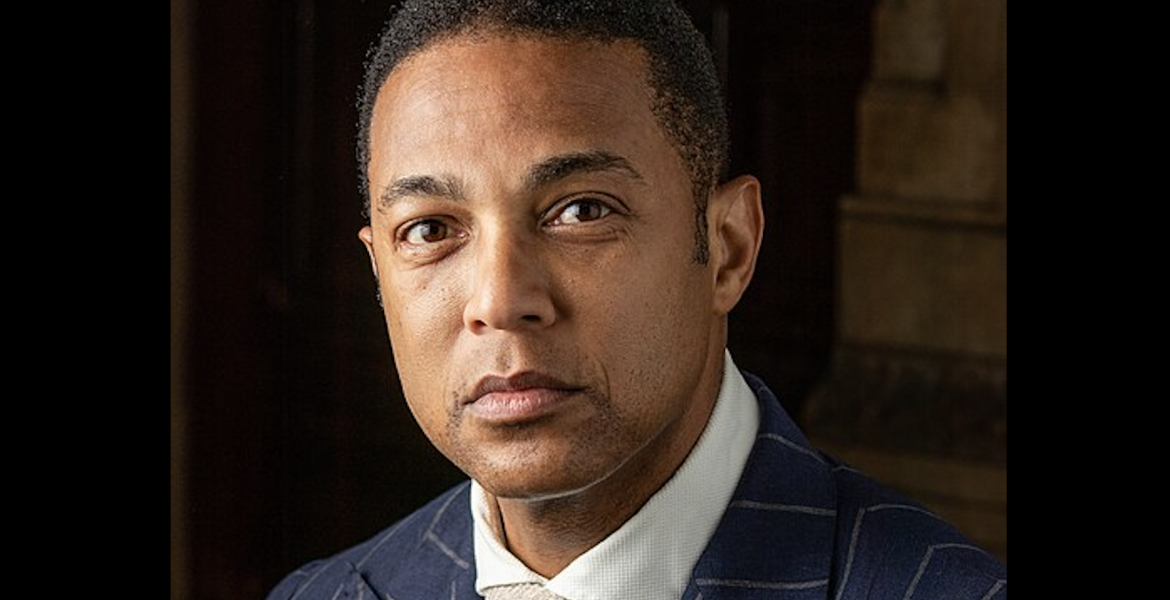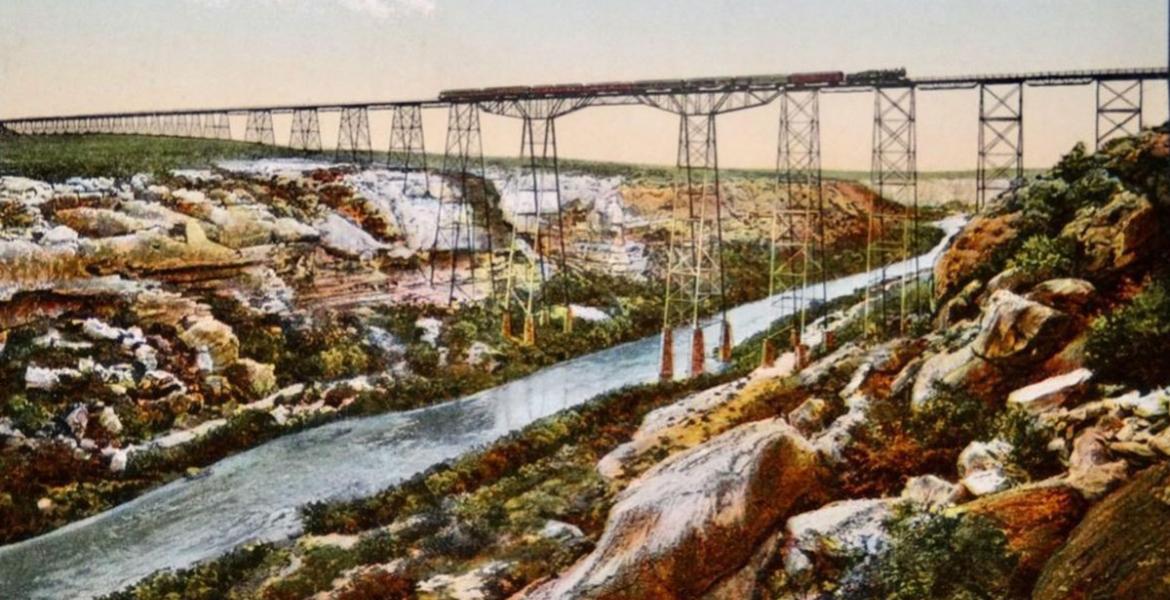OPINION — My mother, Mary Jim Patton Currie, was born on March 27, 1917. She died on December 20, 2011, at the age of 94.
It’s amazing how much I still talk to her and how much she still talks to me through my memory of her actions and sayings.
When Trump announced his tariff policy, I thought of two of my mother’s sayings:
"I hate dumbness."
and
"You have to live in the real world."
When I was growing up in Paint Rock, Texas (approximately 230 pop. In 2025), Mother told me that Paint Rock once had a population of over 1,000. I looked it up and found that the population was 1,000 in 1930. She told me it once had two car dealerships (Ford and Chevy), a lumber yard, and – when she was a child – even a movie theater where it cost a nickel to watch a movie.
Even when I was a child in the 1950's, it had a wool warehouse and feed store. Before school, I would ride my bike to Oleta's Cafe to read the baseball box scores in the San Angelo Standard Times, because the paper was delivered there. Uncle Floy owned a Red and White Grocery Store in the 1950's, and I'd ride with Uncle Bill as he delivered milk from his cows.
Of course, Mother, Aunt Ruby, Aunt Bernice, Aunt Mary, and Aunt Lois didn't work outside the home, because one salary ($350 a month at the bank for Dad) was enough to support a family.
So, when Trump announced his tariff policy, I thought of Paint Rock, where I still ranch. I consider Trump’s tariff policies the equivalent of Congressman August Pfluger (the Pflugers and Curries are both Concho County families) hosting a town hall meeting and announcing he is introducing legislation that will guarantee the return to Paint Rock of a car dealership and a lumber yard. It’s not going to happen.
It’s like a politician promising in 1930 to save the wagon wheel manufacturing and repair business. Henry Ford took care of that. That ship sailed.
Or like promising to revive the print media and shut down online news sites like San Angelo Live. That horse has left the barn.
Progress, in the forms of transportation and technology, ended many businesses in small towns. Schools consolidated, and many small communities died with those schools. It’s much cheaper to drive to San Angelo for groceries, shopping, making large purchases, and on and on.
Advancements in transportation and technology have disrupted life in small towns just like robots and AI have changed manufacturing in America and around the world, and you can’t bring it back. We live in a global economy. Tariffs disrupt everything and will result in two realities: rising costs for everything we buy and the return of high inflation. It’s common sense.
As Mary Jim would say, “You have to live in the real world.” She would also tell you she lived through the Great Depression that was partly caused by tariffs.
To my mind, however, what Trump is doing actually has nothing to do with our economy or creating jobs. It’s about power – his power. He wants all countries, leaders, industries, and institutions to bow down to his all-consuming power and influence. That is why he is attacking universities, media, law firms, judges, and on and on. Close your eyes, bow your head, and kneel before the Great One. It’s what an insecure narcissist does to seek adoration.
Finally, Trump has a worldview that is one-sided and unethical. Every transaction must have a winner and a loser. His limited mind and morals can’t understand win/win situations.
Let me explain.
I buy and develop lots of land in the Wall ISD. It’s been a successful business model for me. But I also look for a win/win in all transactions. I'll pay a farmer more for his land than another farmer if I can still build the road and infrastructure, make a profit, and get a good deal. That is a win for both of us.
Trump is trying to base economic and foreign policy on winning at all costs no matter whom it hurts. The real world doesn’t work that way – can’t afford to work that way – except for authoritarian leaders who do not believe in democracy. So you can trade the freedom of Ukraine as long as you get profit and power from the deal for yourself. Right and wrong isn’t even a consideration. Morality and empathy are not realistic considerations.
Mary Jim didn’t live to see a Trump presidency, but I can hear her now: “I hate dumbness.”
David R. Currie is a retired Baptist minister, local rancher and small business owner. He is a former chair of the Tom Green County Democratic Party.
Subscribe to the LIVE! Daily
Required






Comments
Listed By: Rita Repulsa
- Log in or register to post comments
PermalinkListed By: Wiley Coyote
Yeah, we see yo mommas dumbness every time someone torches a tesla or terrorizes innocent citizens because they dont want to kill babies.
I dont doubt Trump Derangement Syndrome will soon be a medical diagnosis and maybe your insurance will cover the treatment???
- Log in or register to post comments
PermalinkOk
- Log in or register to post comments
PermalinkListed By: sanglo expat
Superb.
- Log in or register to post comments
PermalinkWhat B.S!
- Log in or register to post comments
PermalinkWhen your grandmother spoke of hating dumbness she was talking about her grandson. And all of those things your family has memory of, dealerships, movie theater, cotton gin.. blah blah blah . Those were all closed so we could send their production overseas , to other countries who also HAVE tariffs on American imports IDIOT
- Log in or register to post comments
PermalinkListed By: serenity at last
You only have to look at the United Nations to see how flagrantly the US has been taken advantage of and it keeps getting worse. Apparently you are unaware of the massive tariffs we have been paying to other countries in contrast to what we have collected.
- Log in or register to post comments
PermalinkListed By: sanglo expat
https://www.axios.com/2025/04/06/trump-tariffs-error-aei
- Log in or register to post comments
PermalinkListed By: Rita Repulsa
From my lunar perch, where shadows cast long webs across the desolate expanse, I, Rita Repulsa, gazed upon the Earth with eyes heavy with the weight of aeons. Below, in the wilds of what would one day be called West Texas, a tribe known as the Wini danced their fleeting existence beneath the sun’s unrelenting gaze. It was the era mortals would later mark as the 1600s, though such reckonings meant little to one such as I, who measures time in the slow decay of stars. The Wini were a people vibrant yet frail, their lives a delicate thread stretched taut against the loom of a harsh world. And now, I watched as that thread began to fray.
The Wini had once been a singular people, bound by shared blood and purpose, their hearts beating as one beneath the vast sky. Their songs carried tales of ancestors who wrested life from the arid soil, who hunted with precision and fought with ferocity to guard their kin. But a schism had taken root, a rift born not of malice but of visions irreconcilable. Two factions emerged, each claiming the soul of the Wini, each blind to the peril their division courted.
The first faction, which I shall name the Kinward, held family as the cornerstone of existence. They saw strength in the individual as the foundation of the tribe’s endurance. Their days were filled with rigorous training—children taught to wield spears before they could weave baskets, men and women alike honed in the arts of war and survival. They believed that only through discipline and martial prowess could the Wini thrive against the predators that stalked their borders, both beast and man. Their elders spoke of unity not as an abstract ideal but as a chain forged link by link, each person tempered to bear the weight of the whole. In their camps, laughter mingled with the clash of practice spears, and their fires burned bright with purpose.
The second faction, whom I shall call the Skyseekers, dreamed of a different path. They spoke of equality, of a world where no one stood above another, where resources were shared without question and labor divided without regard to strength or skill. Their hearts were earnest, yet their vision was clouded by a refusal to see the world as it was. The Wini’s resources were scarce—water a fleeting gift, game a hard-won prize—and their safety hung by a thread in a land where rival tribes sharpened their blades under the same moon. The Skyseekers’ ideals, noble in a land of plenty, were a weight the Wini could ill afford. Like mortals of a far future age, who would cloak their dreams in words of justice while ignoring the ledger of survival, the Skyseekers pressed forward, heedless of the cracks forming beneath their feet.
The rift widened. Voices that once sang in harmony now clashed in bitter council. The Kinward pleaded for focus, for training, for readiness against the shadowed threats that circled ever closer. The Skyseekers countered with chants of unity, insisting that to prioritize strength was to betray the tribe’s heart. In time, the Skyseekers’ fervor won the hearts of the many—not through wisdom, but through the seductive ease of their promises. The Wini turned from the path of the Kinward, and a strange transformation took hold.
The tribe began to adorn themselves as beasts of the plain, crafting hides into masks and tails, each choosing an animal spirit to embody. They called these guises their “true forms,” believing they honored the land by blurring the line between man and creature. Women, urged by the Skyseekers’ doctrine, took up the burdens of hunting and fighting, their shoulders bending under tasks their bodies were not forged to bear alone. The men, swayed by the same creed, laid down their tools and spears, claiming labor was a chain to be broken. They lounged beneath the mesquite trees, their hands idle, their eyes distant. The children, once the tribe’s cherished hope, roamed unattended, their laughter turning wild and hollow. The Wini’s stores dwindled—grains vanished, hunts failed, water grew scarce. The Skyseekers called this sacrifice, proof of their commitment to a shared dream. I saw it for what it was: a starvation born of folly.
From my lunar throne, I watched the Wini unravel. Their once-proud fires dimmed, their songs faltered. The Kinward, now a silenced minority, could only stand witness as the tribe staggered toward ruin. And ruin came swiftly. Another tribe, the Jumanos—fierce and unyielding, their name destined to endure where the Wini’s would fade—scented weakness. They gathered on the horizon, their war cries a storm brewing in the dusk.
It was then that I, Rita Repulsa, could bear no more. Though I am no savior, nor swayed by mortal pleas, the Wini’s plight stirred something within me—a recognition, perhaps, of potential squandered. I descended from the moon, my form cloaked in shadow and starlight, and stood before the Wini in their hour of desperation. The Jumanos’ drums beat closer, a pulse of doom, and the Wini trembled before me.
“Hear me, Wini,” I intoned, my voice a tide of solemn power. “I am Rita, watcher of worlds, and I offer you salvation. Cast aside this chaos—restore discipline, honor strength, and guard your kin. Follow my guidance, and you may yet stand against the tide.”
The Wini stared, their painted faces a menagerie of fear and defiance. The Skyseekers, their bodies streaked with the blue paint that marked their cause, raised their voices first. They called for a vote, clinging to their creed even as death’s shadow loomed. The tribe gathered, their hands raised in judgment. The Kinward, faces grim, voted to accept my aid, knowing it their last hope. But the Skyseekers, swayed by their mantra, chanted as one: “Blue, no matter who!” Their numbers carried the day, and my offer was spurned.
I retreated to the heavens, my heart heavy with the weight of what was to come. The Jumanos fell upon the Wini like a flood. The women, burdened beyond endurance, fled in panic, their steps leading them over a cliff’s edge to shatter on the rocks below. The livestock, left unguarded, suffered unspeakable violation at the invaders’ hands. The men, soft from idleness, were seized and flayed, their skins stretched into leather boots that curled at the toe, worn by Jumano shamans in mocking rain dances. The children vanished into the chaos, their fates unwritten but surely grim. By dawn, the Wini were no more, their name destined to crumble into the dust of a land that forgets the weak.
Now, as I sit once more upon my lunar throne, I reflect with somber regret. The Wini were not without courage, nor bereft of dreams. But their failure to temper vision with reality, to balance heart with hand, doomed them to oblivion. I offered them a path, yet they chose the chant over the spear, the dream over the dawn. And so, they are lost—another whisper in the wind, known only to me, Rita Repulsa, who mourns not their fall, but the order they might have forged.
- Log in or register to post comments
PermalinkPost a comment to this article here: